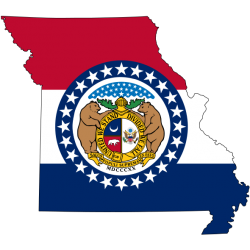
For our 2024 rankings, the research team at Nursing Schools Almanac collected data on nearly 3,000 nursing schools and campuses throughout the United States. We evaluated each school on three dimensions:
- The institution’s academic prestige and perceived value
- The breadth and depth of nursing programs offered
- Student success, particularly on the NCLEX licensure examination
We then combined these assessments into an overall score and ranked the schools accordingly. For a detailed description of our assessment methodology and dimension weights, please see here.
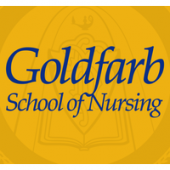
#1: Goldfarb School of Nursing at Barnes-Jewish College
Goldfarb School of Nursing at Barnes-Jewish College was the first school in the nation accredited by the National League for Nursing. The college has also been recognized as a Laerdal Center of Educational Excellence. Barnes-Jewish College conducts BSN, MSN, DNP, and PhD degree programs across two campus sites, one at Washington University Medical Center and one at Missouri Baptist Medical Center. Approximately 400 BSN graduates sit for the National Council Licensure Examination annually, and they have passed this test at a 90% first-try rate over the past decade. More than 40% of graduates land positions at Barnes-Jewish Hospital.
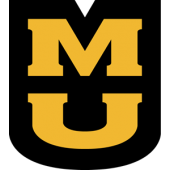
#2: University of Missouri
The University of Missouri’s Sinclair School of Nursing (SSON) is a member of one of the most comprehensive healthcare networks in Missouri, including the School of Health Professions, the School of Medicine, and University of Missouri Health Care. SSON educates nurses at all levels through its traditional BSN, accelerated BSN, online RN-to-BSN, MSN, DNP, and PhD degree programs. At the undergraduate level, SSON produces 150-200 prelicensure BSN graduates annually. These students have passed the NCLEX-RN exam at an exceptional rate of 94% over the past decade.
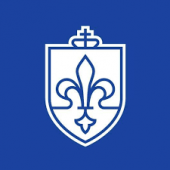
#3: Saint Louis University
The School of Nursing at Saint Louis University created the first accelerated BSN and comprehensive online MSN programs in the nation, the first accelerated MSN and nursing PhD programs in Missouri, and the first DNP program in St. Louis. SLU’s BSN graduates have maintained a strong NCLEX-RN exam pass rate of 90% over the past decade, well above both state and national averages. In addition to impressive licensure exam pass rates, Saint Louis University’s programs are nationally recognized for their innovative and comprehensive curriculum.
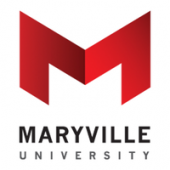
#4: Maryville University
The Catherine McAuley School of Nursing at Maryville University has a considerable collection of program offerings for aspiring nurses. Maryville offers traditional and degree completion BSN programs, as well as a fast-track BSN for students who have completed 65 hours of liberal arts and science coursework. Across the prelicensure BSN pathways, the school graduates approximately 125 students annually. They have consistently scored stellar marks on the NCLEX licensure exam, averaging a 92% first-time pass rate over the past decade. Maryville’s MSN and DNP programs have five specialty NP tracks: family nursing, adult-gerontology primary care, adult-gerontology acute care, pediatric nursing, and psychiatric mental health.
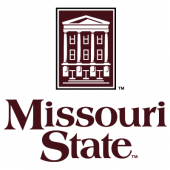
#5: Missouri State University
Missouri State University’s School of Nursing is an integral part of the McQueary College of Health and Human Services. The school offers a breadth of program options. Undergraduates can pursue a traditional prelicensure BSN or an RN-to-BSN completion pathway. The prelicensure program graduates approximately fifty students annually, with an impressive 94% first-time NCLEX pass rate over the past decade. The school’s MSN program has three tracks (family nurse practitioner, population health leadership, nurse educator), with a post-master’s certificate also available in the final two areas. Finally, doctoral nursing students have three options: a post-baccalaureate DNP with an FNP focus, a post-master’s DNP, and a doctor of nurse anesthesia practice (DNAP) offered through the university’s School of Anesthesia.
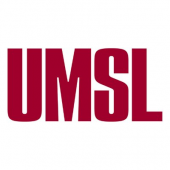
#6: University of Missouri - St. Louis
The University of Missouri - St. Louis (UMSL) College of Nursing enrolls more than 1,100 students across its undergraduate and graduate programs. The college offers a breadth of nursing pathways including prelicensure BSN (traditional, accelerated, or part-time), RN-to-BSN, MSN, DNP, and PhD degrees. Post-graduate certificates are also available in areas of advanced nursing practice such as women’s health, psychiatric-mental health, and adult-geriatric health. UMSL graduates approximately 200 prelicensure BSN students annually, and the school has averaged an 87% first-time NCLEX pass rate over the past decade.
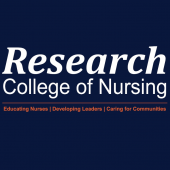
#7: Research College of Nursing
Research College of Nursing began as the German Hospital Training School for Nurses in 1905. Over its history of 100-plus years, the college has graduated more than 4,000 professional nurses at both the undergraduate and graduate levels. The undergraduate program features accelerated and traditional BSN tracks. Across the two pathways, approximately 100 BSN students complete the program each year. These students have posted a strong 90% NCLEX pass rate over the past decade, including a stellar 97% pass rate in 2018. The graduate nursing curriculum features an MSN degree with three tracks: adult-gerontological nurse practitioner, executive practice / healthcare leadership, and family nurse practitioner. Research College of Nursing also offers an RN-to-MSN entry point for ADN- and diploma-prepared nurses.
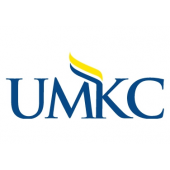
#8: University of Missouri - Kansas City
The UMKC School of Nursing offers a diversity of nursing programs. Degree options include three BSN pathways (traditional, accelerated, RN-to-BSN) and graduate programs at the MSN, DNP, and PhD levels. Prelicensure BSN students consistently perform well on the NCLEX exam, scoring an 89% average pass rate over the past decade and an impressive 97.4% pass rate in 2019. The postlicensure RN-to-BSN, MSN, and DNP degrees can all be completed online. In addition, UMKC offers a graduate certificate program for nurses who already hold an MSN or DNP degree. Eight tracks are available, including a nurse educator certificate and seven distinct nurse practitioner specialties.
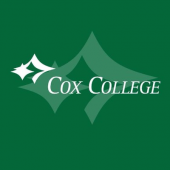
#9: Cox College
For more than a century, Cox College has educated compassionate and dedicated nurses. The school enrolls nearly 1,000 students across a wide breadth of healthcare offerings at the associate, bachelor’s, and master’s degree levels. Cox College’s nursing program is distinguished by its small class sizes, focus on student leadership, and clinical partnership with CoxHealth. These advantages have enabled Cox graduates to perform strongly on their licensure exams. ASN students achieved a 92% first-time NCLEX pass rate over the past decade, while BSN graduates scored an 88% first-time NCLEX pass rate over that time period. The college also offers a BSN completion pathway and three MSN tracks (family nurse practitioner, nurse educator, psychiatric-mental health nurse practitioner), all designed for working nurses and conducted almost completely online.
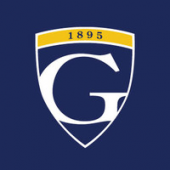
#10: Graceland University
Graceland University prepares a tight-knit graduating class of 40-50 prelicensure BSN students annually. Over the past decade, these graduates have achieved a 90% first-time pass rate on the NCLEX licensure exam, well above both state and national averages. Graceland’s School of Nursing also offers both campus-based and online RN-to-BSN programs, an MSN program with two specialty tracks (family nurse practitioner and nurse educator), an RN-to-MSN entry option, and an online DNP program. The MSN offering is frequently named one of U.S. News & World Report’s top twenty online MSN programs nationwide, with particularly high marks for faculty credentials and student engagement.

#11: Rockhurst University
Saint Luke’s College of Health Sciences, now an integral part of Rockhurst University, has educated nurses since 1903. The school is affiliated with Saint Luke’s Hospital in Kansas City, an internationally renowned healthcare facility. Students have several degree options including a prelicensure BSN, an RN-to-BSN bridge pathway, and an MSN degree with three specializations (adult-gerontology acute care nurse practitioner, family nurse practitioner, and nurse educator). The college is noted for its small class sizes, networking opportunities with one of Kansas City’s largest employers, local volunteer opportunities, and a 100% job placement rate. The prelicensure BSN program graduates 160-180 new nurses annually. Over the past decade, these students have averaged an 86% first-time pass rate on the NCLEX-RN national licensure examination.
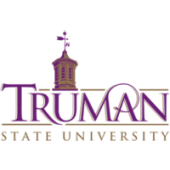
#12: Truman State University
Truman State’s School of Health Sciences & Education prepares students for entry-level positions in the registered nursing field. Two BSN degree pathways are available: traditional and accelerated. Both pathways feature clinical experiences in acute care and community health settings, and both provide access to the ten-bed Nursing Simulation Center. The NSC has several Laerdal mid-fidelity manikins including adult, child, infant, and newborn versions. Truman State graduates approximately 40-50 BSN students each year, with an exceptional NCLEX exam pass rate of 94% over the past decade.
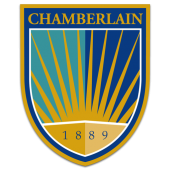
#13: Chamberlain University
Chamberlain University is one of the largest nursing schools in the St. Louis metropolitan area. Approximately 150 students graduate annually from the campus’s accelerated three-year BSN program. These candidates have passed the NCLEX-RN licensure exam at a 90% first-try rate over the past decade. Part of Adtalem Global Education, Chamberlain also offers a wide breadth of online nursing programs. Options include RN-to-BSN and RN-to-BSN-to-MSN degree completion programs; an MSN curriculum with specialty tracks for nursing education, nurse executive leadership, family nursing practice, nursing informatics, and healthcare policy; and a post-master’s DNP program.
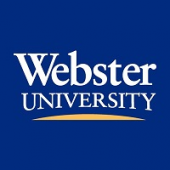
#14: Webster University
Webster University’s College of Arts and Sciences houses a nursing department that offers RN-to-BSN, MSN, and doctor of nurse anesthesia practice (DNAP) programs. The RN-to-BSN curriculum focuses on holistic health promotion for the individual, the family, diverse groups, and the broader community. The program is offered online or on-site in part-time eight-week sessions. The MSN program allows students to choose a nurse educator, nurse leader, or healthcare leadership specialization. Designed for working professionals, the MSN is also delivered through part-time courses in eight-week terms. The DNAP program offers clinical experiences at ten private-practice and university-based facilities. Students obtain real-world exposure at most of these institutions by the time they graduate.
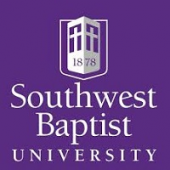
#15: Southwest Baptist University
Southwest Baptist University offers ADN, traditional BSN, RN-to-BSN, and MSN programs. The ADN provides foundational nursing knowledge and skills for the registered nurse generalist, and it prepares students to sit for the NCLEX-RN exam. ADN graduates have passed this licensure exam at a solid 86% rate over the past decade. The 34-credit-hour RN-to-BSN program is designed with the working professional in mind. It offers a flexible course sequence option including a fully online eight-week block schedule, with one block of experiential service learning activities that students may complete locally. The MSN program offers focal areas in nursing education and administration, with a combination of online courses, hybrid classes, and clinical experiences. Students may complete the MSN program in three years part-time, two years full-time, or 18 months accelerated.
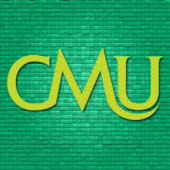
#16: Central Methodist University
Central Methodist University offers several pathways to a baccalaureate or master’s degree in nursing. The school’s traditional BSN program is taught in the Thogmorton Center for Allied Health on the university’s residential campus in Fayette. Each graduating cohort is small, typically around forty students. These graduates have scored an 89% first-time pass rate on the NCLEX exam over the past decade, including a perfect 100% pass rate in 2018. Students with a non-nursing bachelor’s degree can pursue an accelerated BSN at the CMU center in Columbia. ADN- and diploma-prepared nurses can enroll in an RN-to-BSN program offered at three CMU centers (Arnold, St. Charles, St. Louis) and online. Finally, graduate nursing students can pursue an online MSN with tracks for aspiring clinical nurse leaders and nurse educators.
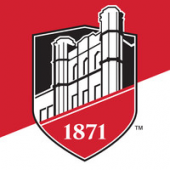
#17: University of Central Missouri
The University of Central Missouri offers a unique nursing program that includes both urban and rural clinical experiences. This diverse exposure has helped UCM’s nursing graduates achieve a 100% employment rate. The school’s 70-80 annual BSN graduates have also enjoyed a solid 88% first-time NCLEX pass rate over the past decade. In addition to a traditional BSN, the undergraduate nursing department offers an online RN-to-BSN program that can be completed in just one calendar year. UCM’s graduate nursing department offers an MSN with two emphasis areas: nurse educator and family nurse practitioner.
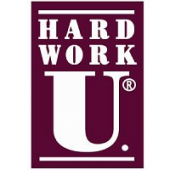
#18: College of the Ozarks
College of the Ozarks (C of O) is home to the Armstrong McDonald School of Nursing, which offers a traditional four-year professional BSN. This competitive program takes a Christ-centered, Biblically-based, character-driven approach to nursing education. The college combines a curriculum grounded in Florence Nightingale’s Environment Theory with leading-edge learning technology and patient care simulation. Nursing courses are sequenced over a six-semester plan, with clinical experiences offered everywhere from the Ozark Mountains to metropolitan areas. Over the past decade, C of O graduates have averaged a 94% first-time pass rate on the NCLEX-RN licensure exam.

#19: Southeast Missouri State University
Founded in 1873 as a teacher’s college, Southeast Missouri State University now serves 11,000 students through 150 academic programs across five distinct colleges. The College of Health and Human Services is the academic home for the university’s Department of Nursing. The department offers a traditional prelicensure BSN program, an RN-to-BSN bridge option, and an MSN degree with family nurse practitioner and nurse educator tracks. The traditional BSN program graduates a cohort of 50-70 students annually. These graduates have averaged a 92% NCLEX pass rate over the past decade, including stellar pass rates of 96% in 2018 and 94% in 2019 and 2020. The RN-to-BSN pathway is offered 100% online and requires just six nursing courses, with field experiences conducted in the student’s region. The MSN curriculum prepares students for advanced nursing practice and, should they so choose, continued doctoral study.
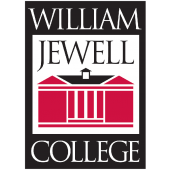
#20: William Jewell College
William Jewell College has produced more than 1,000 nursing graduates who work in staff and leadership positions at just about every hospital in the Kansas City area. The undergraduate nursing program boasts an overseas experience in Central America, participation in the Pryor Leadership Program, and an employment rate of 85% immediately after graduation. William Jewell College graduates 90-100 BSN students annually, and these graduates have averaged an 86% NCLEX pass rate over the past decade.

#21: SoutheastHEALTH College of Nursing & Health Sciences
SoutheastHEALTH College of Nursing & Health Sciences offers an ADN program with four distinct tracks. Students with no prior nursing education can pursue the two-year fulltime pathway, while existing LPNs can enroll in an accelerated LPN-to-RN bridge program. The college also offers tracks during the evenings and weekends, both for LPN-to-RN students and for students with no prior nursing education. Across these four pathways, the college typically graduates about sixty students annually. These students have averaged an 86% first-time NCLEX pass rate over the past decade, including phenomenal pass rates of 96% to 98% in each of the past three years. An RN-to-BSN program is also available for ADN- or diploma-prepared registered nurses who wish to complete their baccalaureate education.
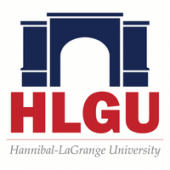
#22: Hannibal-LaGrange University
The Department of Nursing at Hannibal-LaGrange University has clinical affiliations with Hannibal Regional Hospital and Blessing Hospital. HLGU offers an entry-level curriculum for aspiring LPNs, an associate of science in nursing (ASN) for aspiring RNs, and an online RN-to-BSN degree completion program. Graduates of both prelicensure programs have consistently performed well on their licensure exams. ASN graduates passed the NCLEX-RN exam at a strong 88% rate over the past decade, and LPN candidates passed the NCLEX-PN exam at a stellar 90% rate during the same time period.
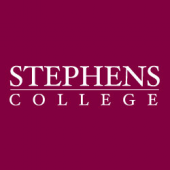
#23: Stephens College
Founded in 1833, Stephens College is the second-oldest women’s college in the country. The school provides programs in the health sciences, integrative studies, and performing arts. The Stephens College School of Health Sciences has a direct-entry BSN program with a limited enrollment of 24 students per cohort. Students begin nursing classes in the first year, with program completion in as little as three years of fulltime study. On campus, BSN students learn in a state-of-the-art simulated nursing center that was converted from an actual former patient care unit, known as The Learning Center at Boone Health. Off campus, and just a block away, students work with real patients at Magnet Hospital Boone Health to gain experience and fulfill clinical requirements.
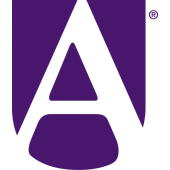
#24: Avila University
Avila University began in 1916 as St. Teresa’s College, the first private college for women in Kansas City. Today the school serves a coed population of 1,700 students across more than sixty undergraduate majors and six graduate programs. The university’s School of Nursing offers a traditional prelicensure BSN degree program. The curriculum covers the arts, humanities, natural sciences, and social sciences, as well as nursing theory and skills. Emphasis is placed on safe nursing practice, effective communication, evidence-based clinical reasoning, and socially responsible healthcare. Avila University graduates approximately forty prelicensure BSN candidates annually. Over the past five years, these students have averaged a remarkable 97% first-time pass rate on the NCLEX-RN licensure exam.
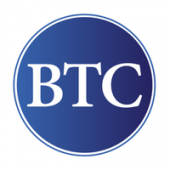
#25: Bolivar Technical College
Bolivar Technical College is the sister campus of Texas County Technical College. The school specializes in adult education, combining classroom instruction with hands-on experience to prepare graduates for immediate employment. Bolivar Technical College offers several nursing pathways including a ten-week CNA course, a one-year LPN certificate, and two entry options for an associate degree in nursing (20-month generic program, 12-month LPN-to-RN bridge). Across all programs, graduates have an excellent track record on their respective certification or licensing exams. For example, ADN graduates have posted an 86% first-time pass rate on the NCLEX-RN exam over the past decade. Six of the past eight LPN classes notched a perfect 100% pass rate on the NCLEX-PN exam.

#26: State Technical College of Missouri
State Technical College of Missouri’s Health Sciences Division offers both a practical nursing technology certificate and an associate of applied science (AAS) degree in nursing. The programs are offered in a career ladder progression. Entry-level students can pursue the LPN certificate through a three-semester, 11-month curriculum. Coursework is combined with clinical experiences at hospitals, clinics, and long-term care facilities throughout the Jefferson City metropolitan area. The LPN program graduates a small class of 10-18 students annually. For three of the past five years, State Tech students have scored a perfect 100% pass rate on the NCLEX-PN licensure exam. Successful LPN graduates can either enter the workforce immediately or matriculate directly into the associate degree program. The AAS curriculum builds on the fundamental and clinical skills of the practical nursing program to prepare candidates for registered nursing licensure in just three additional semesters of study.
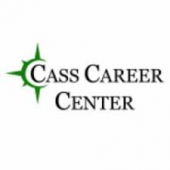
#27: Cass Career Center
For more than four decades, Cass Career Center has offered career and technical programs that prepare students for both post-secondary education and highly skilled careers. The school’s Health Sciences Department conducts programs for aspiring certified nursing assistants and licensed practical nurses. CNA students work hands-on in a long-term healthcare facility. They also participate in job shadowing across a range of hospital settings including nursing, emergency room care, radiology, physical therapy, laboratory work, and medication order entry. LPN students attend classroom lectures, group discussions, laboratory training, and clinical experiences. Cass Career Center graduates a close-knit cohort of approximately twenty LPN candidates each year. Over the past decade, graduates have scored an impressive 97% pass rate on the NCLEX-PN licensure examination.
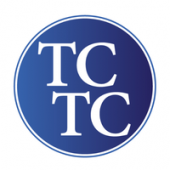
#28: Texas County Technical College
Texas County Technical College devotes all of its institutional resources to just two programs: a practical nursing certificate and an LPN-to-RN associate of science degree. Both programs take one year to complete, and admission is highly selective. The LPN certificate has just 33 seats each year, while the bridge option offers only 27 seats. Students in both programs enjoy a low 6:1 student-to-teacher ratio during lab work. Over the past decade, LPN graduates have enjoyed a phenomenal 95% first-time pass rate on the NCLEX-PN licensure exam. ADN graduates averaged an 83% first-time pass rate on the NCLEX-RN licensure exam during that timeframe, with a perfect 100% pass rate in 2018.

#29: Missouri Baptist University
Missouri Baptist University is the only evangelical Christian university in Saint Louis. Located in the Walker Medical Building next to MBU’s campus, the School of Nursing offers a BSN program that teaches students about health, illness, and the patient-centered provision of nursing care in a faith-based environment. The university offers both a campus-based prelicensure pathway and a 100% online RN-to-BSN bridge option. Students learn and work in an 8,000-square-foot innovative learning space that includes a simulation lab, technology-equipped training classrooms, and community meeting areas.
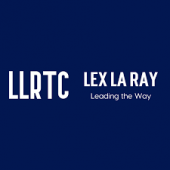
#30: Lex La-Ray Technical Center
Lex La-Ray Technical Center is one of 57 vocational technical schools in the state of Missouri. The facility opened in 1975 and serves approximately 300 students annually. Nursing students have two post-secondary options: certified nursing assistant and practical nursing. CNA students receive 75 hours of instruction in the classroom and skills lab. They must also complete 100 hours of clinical training in a long-term care facility. Graduates are prepared to take the state’s two-part nurse assistant examination, which includes both a written test and a practicum test. Lex La-Ray’s LPN program admits 29 students annually. The curriculum emphasizes quality care in a broad range of healthcare settings under the direct supervision of a registered nurse or licensed physician. Graduates are prepared to take the NCLEX-PN national licensure exam. Over the past decade, LPN students have averaged an impressive 94% NCLEX pass rate, including a perfect 100% (25 out of 25) pass rate in both 2017 and 2018.
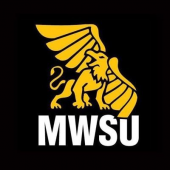
#31: Missouri Western State University
Missouri Western’s Department of Nursing believes that successful nursing practice requires a holistic focus on person, health, and environment. The nursing faculty integrate this approach across several programs, including a four-year prelicensure baccalaureate degree, a two-year RN-to-BSN completion pathway, and a master’s degree. The MSN program offers two distinct tracks: health care leadership and nurse educator. Students who do not wish to complete the full MSN program may instead pursue a nurse educator graduate certificate. RN-to-BSN classes are conducted online, with a senior capstone course that provides local clinical opportunities in community health and leadership. The flagship prelicensure BSN program graduates approximately 90 students annually, with a solid 89% first-time NCLEX pass rate over the past decade.
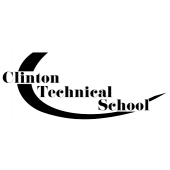
#32: Clinton Technical School
Clinton Technical School offers programs in six vocational fields: automotive technology, building trades, computer networking and cybersecurity, health occupations, machine tool technology, and welding. One of the school’s most successful health occupations programs is its certificate in practical nursing. The LPN program features small class sizes, with a maximum of 28 students in each cohort. Classroom lectures are coupled with clinical experiences across a wide variety of healthcare settings. Practical nursing graduates have enjoyed success on the NCLEX-PN licensure examination, with a 91% first-time pass rate over the past decade.
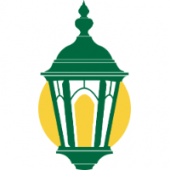
#33: Missouri Southern State University
Missouri Southern State University was founded in 1937 as Joplin Junior College. Today the university serves 6,000 students across more than 140 academic programs, including nursing. The Nursing Department sits within the university’s School of Health Sciences. Nursing students can enroll in either a prelicensure BSN degree or an RN-to-BSN bridge program. Prelicensure students have scored an impressive 90% first-time NCLEX pass rate over the past decade. The class of 2018 also posted a 100% employment rate. MSSU’s BSN program can serve as a stepping stone for graduates to pursue more advanced nursing roles including clinical specialist, nurse administrator, nurse anesthetist, nurse educator, or nurse practitioner.
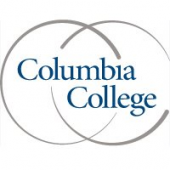
#34: Columbia College
Columbia College was originally founded in 1851 as Christian Female College. Today the school serves a coed population of 20,000 students at its thirty-plus campuses, located across thirteen states and Cuba. The college offers an associate degree in nursing at both its flagship Columbia campus and its satellite Lake Ozark campus. Both locations have achieved an impressive 92% first-time pass rate on the NCLEX licensure exam over the past decade. Columbia College also provides two pathways to a BSN degree: a traditional prelicensure program and an online RN-to-BSN completion option. The prelicensure BSN program recently gained initial approval status from the Missouri State Board of Nursing. Columbia College nursing students learn medical-surgical care, community care, and various nursing specialties. Throughout their studies, they have access to responsive patient simulators and the same medical equipment used in hospitals across the nation.
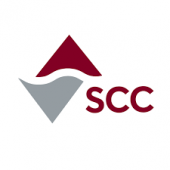
#35: St. Charles Community College
St. Charles Community College awards associate degrees and certificates in the arts, the sciences, business, and a range of vocational fields. Aspiring nurses can choose from a non-credit CNA certificate, a practical nursing certificate of achievement, and two pathways to an associate degree in nursing (traditional or LPN-to-RN bridge). The college also offers a six-credit post-baccalaureate registered nurse first assistant (RNFA) certificate which is approved by the Association of periOperative Registered Nurses (AORN). Graduates of St. Charles Community College are consistently well-prepared for their licensure and certification exams. For example, the LPN program has scored a 100% first-time NCLEX pass rate two of the past three years. The ADN graduating class of 2019 accomplished the same feat.
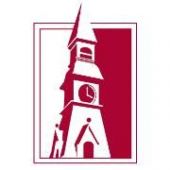
#36: Park University
Park University is a private, nonprofit, liberal arts institution that serves more than 10,000 students through its flagship residential campus, 41 campus centers, and an online division. Park U’s campus centers are located across twenty-two states; most are on or near United States military bases. The Ellen Finley Earhart Department of Nursing offers both a prelicensure BSN program and an RN-to-BSN degree completion option. The prelicensure program offers small class sizes and a state-of-the-art skills lab at the school’s flagship Parkville campus, only a short drive outside of downtown Kansas City. Students conduct their clinical experiences at hospitals and medical facilities throughout the metropolitan region. The RN-to-BSN program is conducted entirely online with both fulltime and part-time options. Students have a maximum of five years to complete the curriculum.
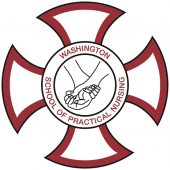
#37: Washington School of Practical Nursing
The Washington School of Practical Nursing conducts a highly regarded LPN certificate program at the Four Rivers Career Center. The program offers daytime classes every Monday through Thursday, with a new cohort of approximately thirty students entering each August and graduating the following July. Students complete 863 theory hours, 45 lab hours, and 456 clinical hours. Successful graduates are prepared for a range of employment opportunities including long-term care, urgent care, school nursing, and home healthcare. They may also advance their studies by entering an LPN-to-RN bridge program at a local institution. The Washington School of Practical Nursing has a stellar track record of success on the NCLEX-PN licensure examination, posting a 93% first-time pass rate over the past decade.
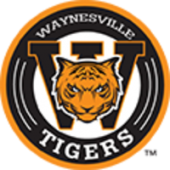
#38: Waynesville Career Center
The Waynesville Career Center is home to the Waynesville School of Practical Nursing, which has educated LPNs for nearly fifty years. The school’s diploma program admits a new cohort of 36 candidates each August. The class completes its rigorous 11-month curriculum the following June. Students learn to apply nursing concepts and critical thinking while considering the developmental, physical, psychological, sociocultural, and spiritual aspects of their patients. Waynesville’s LPN graduates have a strong track record of success on the NCLEX licensure examination. For example, the past two graduating classes each scored a perfect first-time NCLEX pass rate of 100%.

#39: Cape Girardeau Career & Technology Center
Since 1967, Cape Girardeau Career & Technology Center has provided career and technical training programs for high school students and adult learners. Students can earn a certificate or other credential in anything from digital media production to welding. For those seeking a career in nursing, Cape Girardeau CTC has both nursing assistant and practical nursing pathways for individuals with a high school diploma. The nine-week CNA program combines 90 hours of classroom instruction with 110 hours of hands-on practice in a long-term care facility. The LPN program offers three options: a 12-month day schedule, a 24-month evening schedule, and a special pathway for high school seniors. Practical nursing students complete their clinical rotations at six local healthcare facilities, including Saint Francis Medical Center, Southeast HEALTH, and Cross Trails Medical Center. Cape Girardeau CTC’s nursing graduates are well prepared to sit for the CNA certification test or the NCLEX-PN licensure exam. For example, LPN students have averaged a 93% first-time NCLEX pass rate over the past decade.

#40: Applied Technology Services
The practical nursing program at Applied Technology Services prepares students for immediate employment in the field in just 12 months. Fully approved by the Missouri State Board of Nursing, the Applied Tech LPN program offers in-person learning at two campuses in St. Louis County. Students complete three trimesters of study on critical topics like adult health nursing, intravenous therapy, human growth and development, and nursing leadership. Hands-on laboratory work, simulation courses, and intensive clinical experiences at area hospitals are all part of the program. Graduates of the Applied Tech practical nursing program are prepared to sit for the NCLEX-PN licensure exam. The school graduates nearly 100 LPN students each year, with an impressive 88% first-time NCLEX pass rate over the past decade.
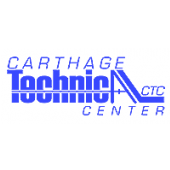
#41: Carthage Technical Center
The practical nursing program at Carthage Technical Center provides an academic and clinical foundation in just 10.5 months. The program is continuous, so classes run through the summer months. Across three trimesters, students take coursework in pharmacology, maternal health, newborn nursing, mental health, and community health. The average LPN graduating class is just 15-30 students, so the program is selective and each cohort is close-knit. A major component of Carthage Technical Center’s LPN program is the NCLEX-PN prep course. Completed during weeks 8-14, the course is 16 clock hours in length with a focus on test-taking approaches, common topic areas, and current nursing content. The results are impressive: Carthage Technical Center’s LPN graduates have scored an exceptional 93% first-time NCLEX pass rate over the past decade.

#42: Warrensburg Area Career Center
The Warrensburg Area Career Center offers career and technical education for adults seeking gainful employment or a bridge to more advanced studies. The center offers a practical nursing certificate program that requires 1,328 hours of study over 44 weeks. Students gain hands-on experience at local clinical sites like Western Missouri Medical Center and Golden Valley Memorial Hospital. These clinical experiences cover the full breadth of healthcare settings including adult nursing, maternity, child nursing, elderly care, and nursing leadership. Graduates are prepared to seek positions in hospitals, doctors’ offices, nursing homes, home healthcare agencies, and schools. The Warrensburg Area Career Center graduates a small class of 10-20 LPN students each spring. Over the past decade, these LPN candidates have averaged a 90% first-time pass rate on the NCLEX-PN licensure exam.
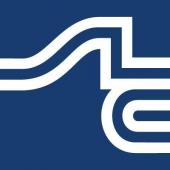
#43: St. Louis Community College
St. Louis Community College is the largest college in the region. The school has 14 campuses and education centers throughout the St. Louis metropolitan area that provide more than 80 career training programs, 20 college transfer options, and 700 continuing education courses. The Center for Nursing & Health Sciences offers both a generic ADN program and an LPN-to-ADN pathway. The curriculum emphasizes intensive clinical experiences at local healthcare facilities like Mercy Hospital St. Louis, SSM Health Cardinal Glennon Children’s Hospital, St. Luke’s Hospital, and Barnes-Jewish Hospital. On campus, STLCC nursing students learn and work in state-of-the-art classrooms and simulation laboratories. The nursing program is large, graduating approximately 150 students annually across both tracks. Over the past decade, these students have averaged a noteworthy 89% first-time NCLEX pass rate.
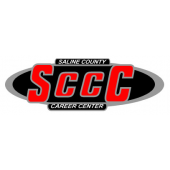
#44: Saline County Career Center
The practical nursing program at Saline County Career Center consists of two discrete curriculum blocks. Students begin with foundational preclinical coursework for the first 17 weeks of study. Afterwards, they progress into the 29-week clinical block, which combines continued coursework with clinical experiences at local healthcare facilities. Students participate in a range of academic activities including lectures, participatory discussions, group exercises, nursing skills demonstrations, supervised laboratory practice, and a field trip. The LPN program graduates a tight-knit class of approximately twenty students annually. Over the past decade, these students have averaged an 85% first-time pass rate on the NCLEX licensure examination. The class of 2017 scored a perfect 100% NCLEX pass rate.
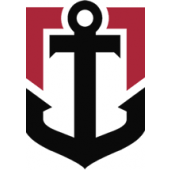
#45: North Central Missouri College
North Central Missouri College provides degree and certificate programs to more than 1,600 students. The college has options ranging from arts and communications to nursing and STEM, with an impressive 98% placement rate across programs. Aspiring nurses can pursue their studies in a career ladder fashion through NCMC’s 11-month practical nursing certificate and nine-month PN-to-ADN bridge program. The practical nursing certificate has online components that allow students to complete some coursework on their own schedule. Approximately 80 students graduate from the LPN program annually, with a phenomenal 98% first-time NCLEX-PN pass rate over the past decade. The PN-to-ADN program prepares students for a career as a registered nurse, as well as for future entry into a BSN completion program. The college’s articulation agreements with at least a dozen local and online universities enable seamless transition of ADN credits into a baccalaureate program. Approximately 75-100 students graduate from the ADN program annually, with an impressive 93% first-time NCLEX-RN pass rate over the past decade.
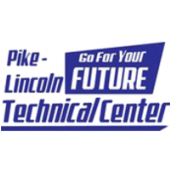
#46: Pike-Lincoln Technical Center
The demand for practical nurses is growing at many employers, including correctional facilities, insurance companies, schools, travel nursing agencies, and pipeline companies. The goal of the LPN program at Pike-Lincoln Technical Center is to prepare nurses for these opportunities. Since 2015, PLTC’s practical nursing graduates have enjoyed an exceptional 96% job placement rate, with 100% of graduates securing employment for 2016 and 2018. Fully approved by the Missouri State Board of Nursing, the program encompasses 67 credit hours delivered at an accelerated pace over 11 months. Course topics include medical-surgical nursing, pharmacology, and leadership. Upon completion of the program, graduates are eligible to sit for the NCLEX-PN licensure examination. Pike-Lincoln Technical Center’s LPN students have passed the exam at an 86% first-try rate over the past decade.
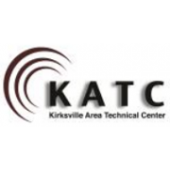
#47: Kirksville Area Technical Center
Kirksville Area Technical Center provides education and technical training to secondary students and adults on topics ranging from automotive repair to nursing. The center’s practical nursing program is approved by the Missouri State Board of Nursing, and it is open to high school graduates and individuals with a GED. In addition to traditional classes, laboratory exercises, and clinical experiences at local healthcare facilities, LPN students complete several on- or off-campus workshops. KATC’s practical nursing program graduates a selective cohort of approximately 25 students each year. Over the past decade, these students have achieved an outstanding 93% first-time NCLEX pass rate. KATC practical nursing graduates are prepared to pursue roles at community health centers, clinics, and hospitals.
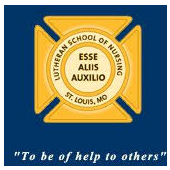
#48: Lutheran School of Nursing
The Lutheran School of Nursing has educated nurses for more than a century. The school is a department of St. Alexius Hospital and resides on the hospital’s Jefferson Avenue campus. Lutheran offers a hospital-based diploma program with two pathways: a traditional 26-month course of study and an LPN-to-RN bridge track. Students receive instruction in Lutheran’s educational building which includes a health sciences library, laboratories, classrooms, and conference areas. Clinical experiences are also integrated throughout the curriculum. The program graduates 75-100 new nurses annually. Over the past decade, these students have achieved a solid 85% pass rate on the NCLEX licensure exam.
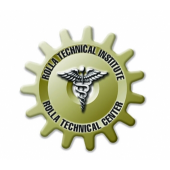
#49: Rolla Technical Center
Rolla Technical Center has offered college and career preparation for high school students and adult learners since 1967. Accredited by the Council on Occupational Education, Rolla Technical Center offers programs in areas ranging from construction to practical nursing. The LPN pathway is provided in partnership with East Central College to a close-knit cohort of approximately 25 students annually. Practical nursing students can expect to spend 20-30 hours per week outside of class preparing, practicing, and studying. This accelerated program includes clinical rotations at area healthcare facilities, and it requires just 11 months of fulltime study to complete. Graduates are qualified to sit for the NCLEX-PN licensure examination, and upon successful completion, to pursue employment at community health centers, hospitals, and long-term care facilities. Over the past decade, Rolla Technical Center’s LPN graduates have averaged an 87% first-time NCLEX pass rate.
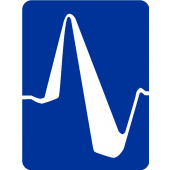
#50: St. Louis College of Health Careers
St. Louis College of Health Careers has been in continuous operation for more than four decades. The school conducts diploma, associate degree, bachelor’s degree, and master’s degree programs that prepare students for immediate employment. The college offers both a practical nursing diploma and an associate of applied science (AAS) LPN-to-RN bridge program. The practical nursing diploma covers an in-depth curriculum on therapeutic, rehabilitative, and preventative care. Students learn how to take vital signs, administer injections, apply dressings, perform clerical duties, and keep accurate medical records. LPN graduates have averaged an 84% first-time NCLEX-PN pass rate over the past decade. The LPN-to-RN bridge program at St. Louis College of Health Careers holds initial approval from the Missouri State Board of Nursing. The AAS curriculum is designed around several core topics including clinical decision-making, assessment, patient education, continuity of care, collaboration, and leadership.
